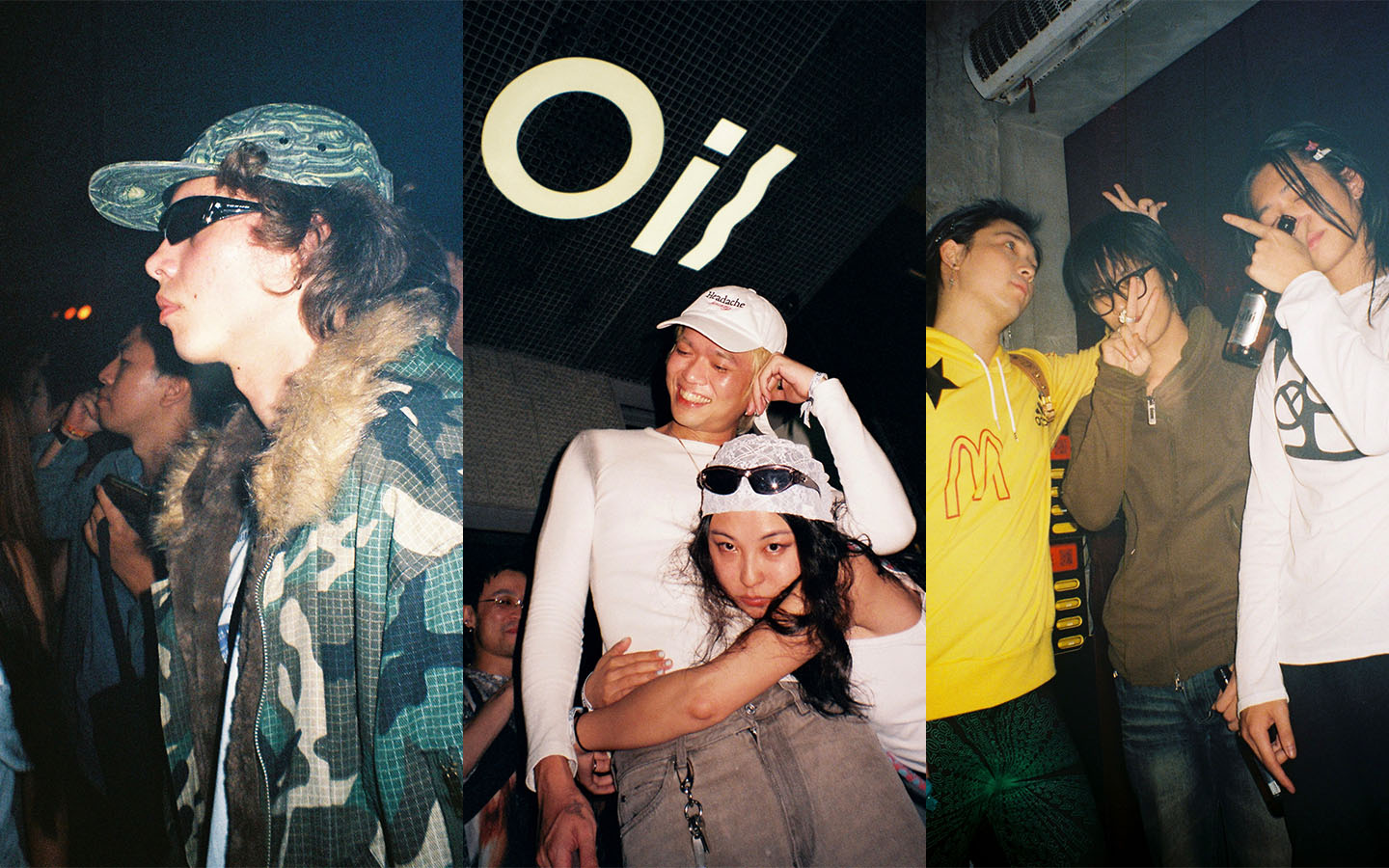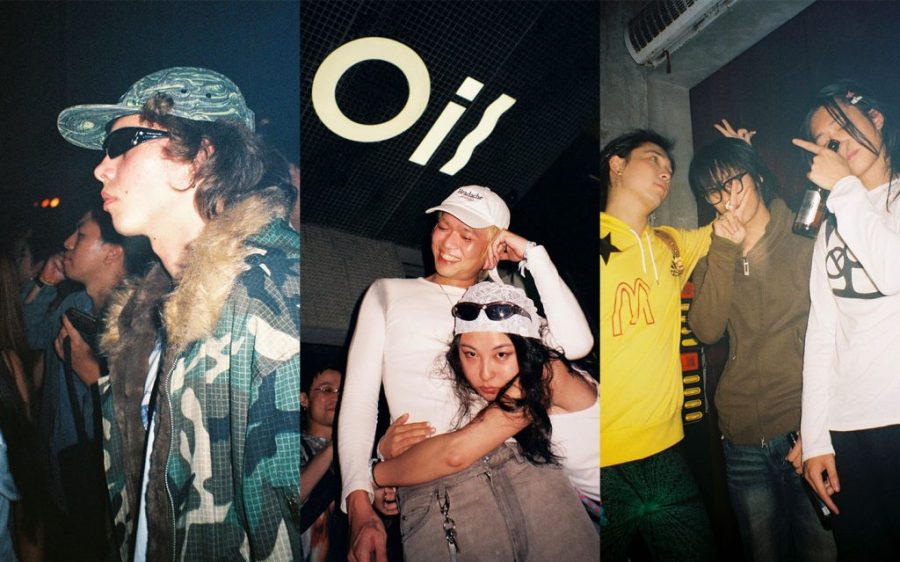Shenzhen’s Oil Club has become one of the most influential forces in China’s underground electronic music scene. It’s a place where local, up-and-coming DJs share the stage with established international artists like Yousuke Yukimatsu and Jyoty, and where a community has taken root against all odds.
Twice featured in Resident Advisor’s Club of the Week and home to Boiler Room Shenzhen, Oil has earned near-legendary status in less than a decade. During its eighth-anniversary weekend, I witnessed the incredible cross-section of China’s electronic music community, from veterans from the 1990s, rising Gen Z artists and musicians who have made China their home to some of the country’s most influential promoters and club owners.
[See more: Meet Diwa’s Lam Wai Hong, who is nurturing the electronic music scene in Macao]
The club that remade Shenzhen nightlife
Located in Futian’s business district, Oil stands out amidst an otherwise lowkey neighbourhood. Its new space, Room Too, creates an alfresco-esque clubbing space during the earlier hours of the night.
Room Too has a long rectangular opening. Even from across the street, you can hear the beat and see silhouettes moving. Once you step inside, that entryway frames the DJ’s silhouette against the sleeping city beyond its wall.
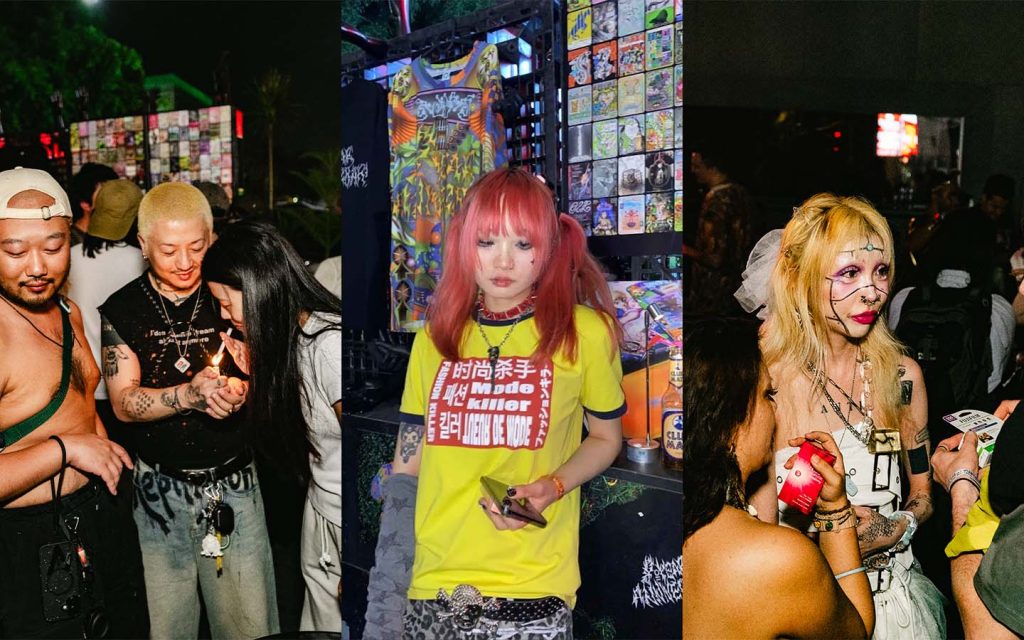
Outside, an eclectic crowd of people gathered. There were facial piercings, tattoos and bold makeup. A lot of them had bleached hair, some brightly dyed, and a surprising number of men had long hair. One young woman had sparkly, pink makeup that made her look like an anime character, while another from Beijing, who travelled to Shenzhen just for the event, had drawn black stars on her cheeks.
Oil’s team expressed the same free spirit, with lip piercings, shaggy mullets and shoes that looked like they belonged in a post-apocalyptic video game.
[See more: Why are day parties becoming popular in Macao and Hong Kong?]

There was a small but significant international crowd too. I spoke to a British-Indian man from London who was in China for the first time and was at Oil because a local had urged him to come. Many young Eastern Europeans living and working in Shenzhen came with their Chinese friends. Amongst the chatter of Mandarin and Cantonese, you could catch snatches of English and other languages. Chainsmoking security guards dressed like policemen stood by the doors. Just next door to the club was a grilled skewers at a restaurant with outdoor seating, glancing curiously at the clubgoers.
It struck me that as China opened its borders, places like Oil are where global crowds now mix. Cliché or not, music unified everyone.
Oil’s origins
Oil’s founder, Yangyang, didn’t come up in the club scene. She only discovered electronic music and Shenzhen’s underground dance parties after graduating from university in 2013, when her former business partner introduced her to parties in commercial bars and raves held under bridges, by the sea and even on the mountains.
For someone who had never frequented bars or nightclubs, they were eye-opening experiences. “I was utterly captivated by the welcoming, joyful atmosphere,” she reflects.
[See more: Here’s how to buy tickets online for events in mainland China]
A second-generation Shenzhen native, she had long heard her hometown referred to as a “cultural desert”. The existing clubs felt generic and dull, failing to capture the raw energy the young Shenzhen crowds wanted.
Promoters operated like “guerrilla forces”, staging pop-ups until the authorities shut them down. Yangyang recalls one night when a party was cancelled abruptly. Not wanting to go home yet, she and her friends “danced by the roadside, blasted music through our car stereo, and danced until dawn,” she says.
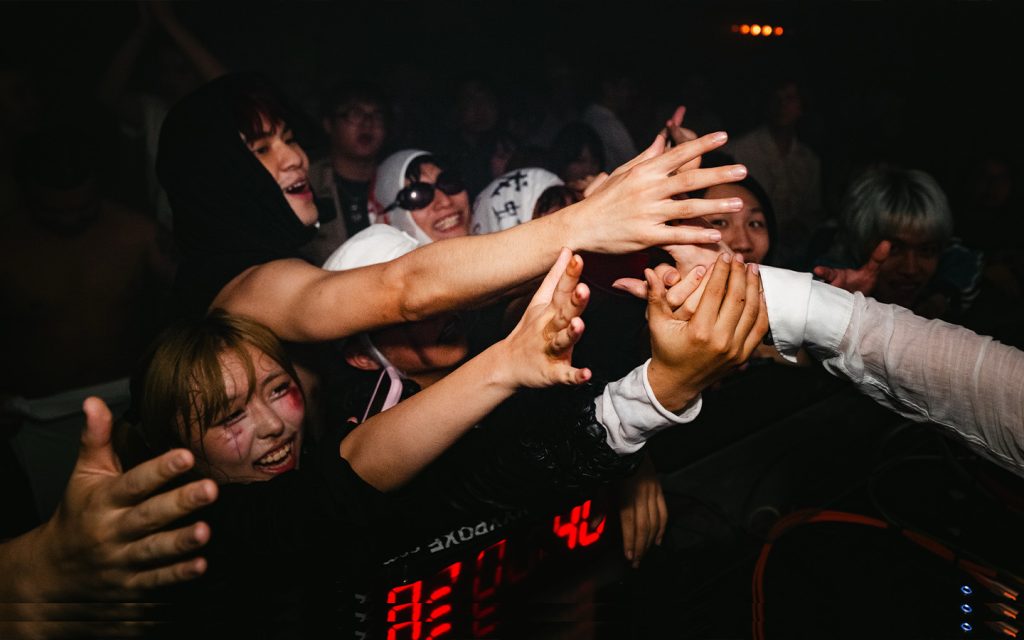
Her lightbulb moment came after a trip to London in 2015. There, she partied through famed venues like Fabric, Village Underground and Corsica Studios, but it was a tiny East London venue called Birthday that left the most profound impression on her.
That night, a blistering set by British DJ Mumdance put the energy through the roof. Yangyang knew she wanted to create a legitimate space for underground music in Shenzhen, with a world-class soundsystem worthy of it.
[See more: China extends visa-free travel for 45 countries]
Oil opened two years later in November 2017, with sets by German producer Mechatok, London-based music producer Swindle and Kode9 – the legendary founder of Hyperdub, one of the most progressive dance music labels in existence today, according to Yangyang.
“I still think about how surreal it was to hear Kode9 for the first time on the Oil dancefloor,” she says.
Nurturing a new scene
In Oil’s early years, many established international artists were eager to tour China. They were not strangers to cities like Beijing, Shanghai and Chengdu, but Oil was often their first introduction to Shenzhen. The club became part of the Silk Road for electronic music, and word about Oil began to spread.
Surprisingly, getting international DJs on the card proved easier than finding local DJs to perform as supporting acts. The Shenzhen scene lagged behind Hong Kong and Guangzhou.
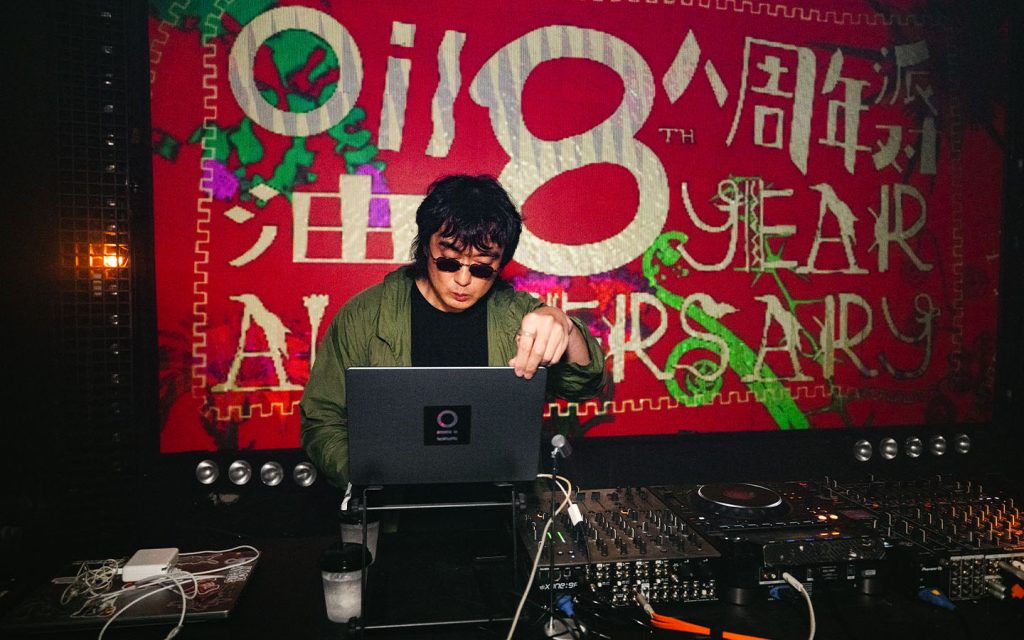
To address that gap, Yangyang and her former business partner started running weekly Open Decks events and DJ workshops just two months after the club opened. Most of Oil’s current resident DJs, such as Warmchainss, Sirens, Fatalis and Nebulae, got their start on the decks because the club gave them a chance. Since then, many of them have played Boiler Room sets and headlined at other venues.
[See more: Chinese youth use RedNote to push back against Singles’ Day overconsumption]
Oil still runs the Open Decks programme, releasing workshop announcements on WeChat and Red Note, and through 新面孔 (“new faces”), a recurring event showcasing standout participants.
During the pandemic, Oil also organised exchanges with nearly ten clubs across Beijing, Shanghai, Hangzhou, Chengdu, Xiamen and Xi’an. Each venue sent promising local DJs to partner venues.
“Looking back, this pandemic-era exchange was profoundly valuable,” says Yangyang. “It forged meaningful connections across China’s club scene: between cities, venues, musicians and audiences [alike].”
Many of those DJs even returned for the anniversary weekend. Oil’s booking manager DJ 86 (Bāliù) even joked: “If someone set a bomb off now, China’s entire electronic music scene would be gone.”
Reflections on Oil
Everyone I spoke to at Oil radiated passion not just for music, but also for club culture. Oil collaborates with Chinese graphic designers to produce original posters for each event, drawing inspiration from 90s rave posters, 2000s punk aesthetics and surreal fantasy art or cyberpunk futures.
“It’s a huge expense,” admits 86, “but we think it’s an important part of club culture. We want to pass something down to the next generation, just as the past generation passed this onto us.”
[See more: Shenzhen has opened one of world’s biggest indoor ski domes]
Meanwhile, Zzm, one of Oil’s resident DJs and content editors, has been writing a four-part blog series chronicling China’s underground electronic music scene ahead of the anniversary.
A few hours before the industrial-designed main room opened to the public, I saw the pride and joy of Oil in the light: its towering, custommade Danley Sound Labs soundsystem. Yangyang says a matching system is currently being built for Room Too as well.
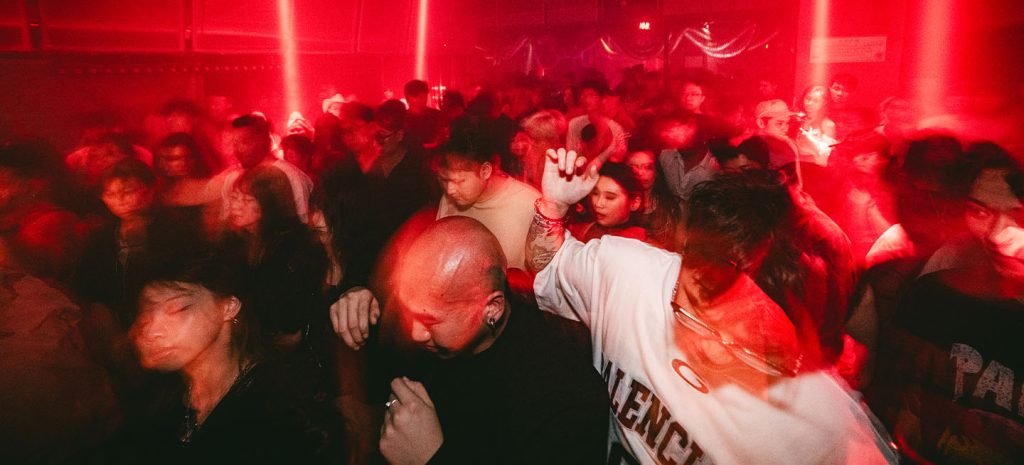
Crowds danced anonymously as lasers sliced through smoke. Shenzhen’s rising DJs shared the decks with China’s electronic elite, delivering sets that ranged from energetic to enigmatic to downright bizarre.
At one point, the crowd started chanting the name of a British DJ Daniel Power. I later learnt that he had lived in Shenzhen before relocating to Beijing, but the people of this city remember him fondly.
[See more: Meet JinJin Xu: The interdisciplinary artist drifting between New York, Shanghai and Macao]
For all the festivities, there was a more serious undertone.
“Many iconic underground clubs are closing down across China,” says 86. “Some of them opened around the same time as Oil.”
“Truthfully, we’re not going to make much of a profit from this,” 86 continues. “This is purely a reunion, something to bring our community together during these hard times.”
That community was unmistakable at Oil, a safe space for those who love electronic music and club culture – and even people who just want to have a good time. The anniversary was much more than a three-day rave. It was a reunion. An act of resilience.
It was plain for all to see. In a city once derided as a cultural desert, Yangyang and her team have dug deep and found Oil.
